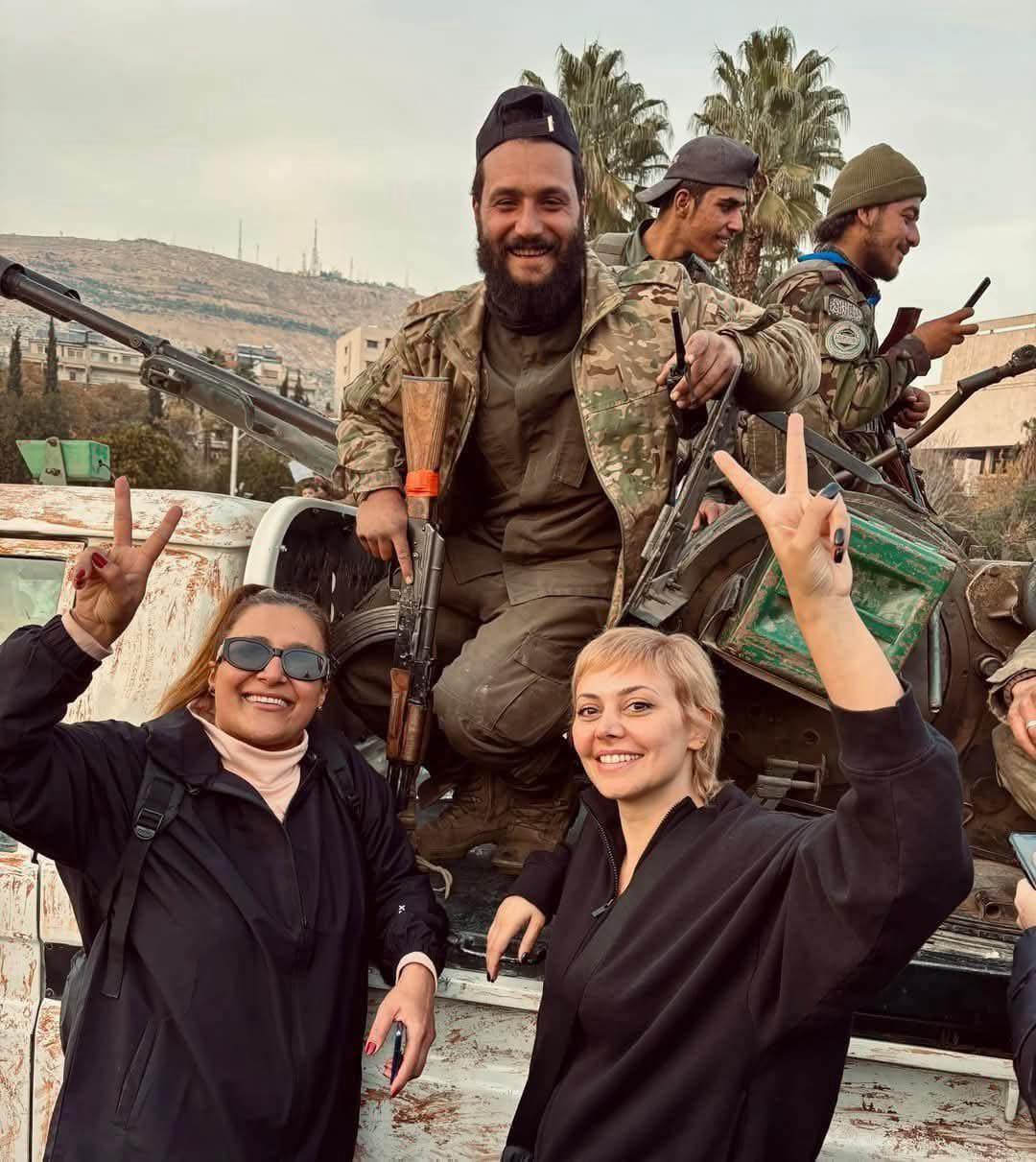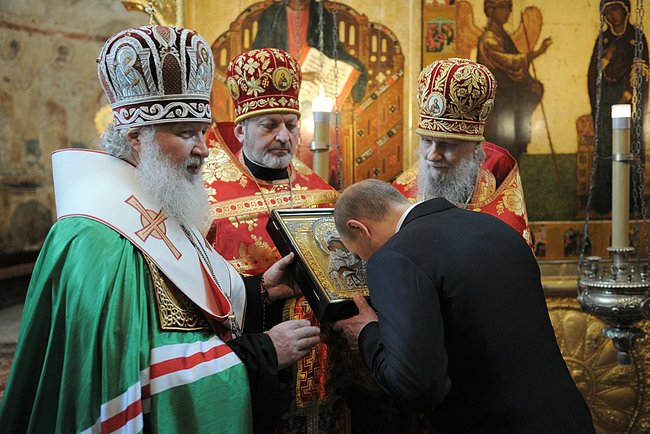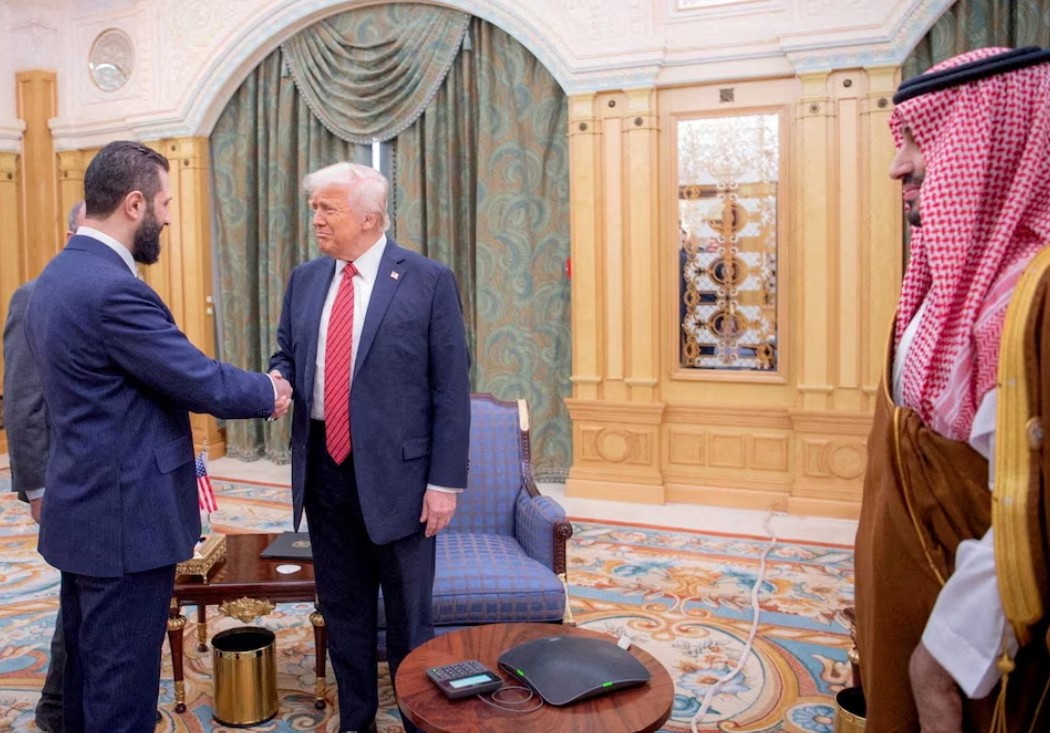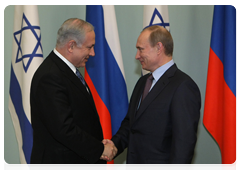Russian Missile Sale to Iran Involves Unseen Deals With Israel

Last month, when President Vladimir Putin of Russia announced plans to sell a powerful anti-missile system to Iran before the lifting of international sanctions, Israel was quick to join the U.S. in expressing shock and anger.
But behind the public announcements is a little-known web of arms negotiations and secret diplomacy. In recent years, Israel and Russia have engaged in a complex dance, with Israel selling drones to Russia while remaining conspicuously neutral toward Ukraine and hoping to stave off Iranian military development. The dance may not be over.
Critics of the Russian move say it undermines efforts to apply pressure to Iran by removing one building block of a sanctions regime that will be hard to put back together. It would also enhance Iran’s defenses against a potential U.S. or Israeli attack, as both countries have said they’d consider using force if diplomacy fails.
Israeli officials, including Prime Minister Benjamin Netanyahu, warned that the missiles, known as S-300s, would provide the Islamic Republic with a military shield that would encourage further adventurism, and expressed concern they could end up in the hands of Iranian allies like Lebanon’s Hezbollah.
Others argued that the Russian move shouldn’t be taken at face value.
“The public announcement of the possible sale of S-300 to Iran is no more than a political gesture aimed at the U.S. to motivate it in restraining its arms transfers to Ukraine,” says Konstantin Makienko, deputy head of Moscow’s Centre for Analysis of Strategies and Technologies.“In any case deliveries of S-300s to Iran will remain a bargaining chip between Moscow, the United States and Israel in talks on a wide range of issues.”
Ukraine
One of those issues is Israel’s neutrality toward Ukraine, where Russian-backed separatists have waged war over the past year. Israel has held back from selling weapons to the government in Kiev, which is backed by the U.S. and European Union, in the hope of keeping Russia’s S-300s away from Iran. It’s reportedly reconsidering that position
“Israel has come under a lot of pressure for not joining the all-Western consensus on the Ukrainian crisis,” said Sarah Feinberg, a research fellow at Tel Aviv’s Institute for National Security Studies. “It was a difficult decision for the Israeli government, which was concerned about possible Russian retaliatory moves in the Mideast - such as selling the S-300 to Iran.”
On April 18 Putin cautioned Israel against selling arms to Ukraine, saying it “will only lead to yet another swirl of confrontation, to more human casualties, but the result will be the same.”
Importing Drones
Putin’s concern over Israeli arms sales to Ukraine, including drones, is not without basis. Last October, Ukrainian Foreign Minister Pavlo Klimkin visited Israel and told local journalists his country was very interested in importing Israeli drones, especially to monitor ceasefire agreements with Russian-backed separatists.
Just a month earlier, Israel’s Channel 2 television reported that Israel Aerospace Industries Ltd., the country’s top producer of unmanned aerial vehicles, had agreed to sell Ukraine drones. The deal foundered over opposition from within the Israeli government, Channel 2 said, without citing sources.
An Israeli official, who was not authorized to discuss the matter on record, said the drones sale to Ukraine was quashed after Putin phoned Netanyahu to object. Netanyahu’s office, the Israeli Defense Ministry and IAI declined comment. A Putin spokesman, Dmitry Peskov, didn’t reply to messages seeking comment.
While Ukraine may not have gotten the Israeli drones, Russia already has -- in an earlier deal that sources say has a direct connection with the S-300 sale.
Georgia
Russia expressed interest in buying Israeli drones after coming up against them during the 2008 war with Georgia. In 2010 Russia concluded a deal to purchase 15 of them from IAI, and to set up a joint venture to produce drone technology.
An Israeli familiar with the matter said the drone deal with Russia carried an unwritten quid pro quo: It would proceed only if the Kremlin suspended its announced S-300 sale to Iran. Now having gotten the Israeli technology, the Israeli said, that promise is no longer a factor in Russian considerations.
“Sending drones or other arms to Ukraine would be an ineffective, even inconsequential Israeli response to Russia selling the S-300s to Iran,” said Feinberg. More effective, she said, would be for Israel to lift its political neutrality on the Ukrainian conflict, or take actions in the Middle East against Russian regional allies such as the Bashar al-Assad regime in Syria.
50 Clients
IAI says it sells drones to 50 international clients but wouldn’t provide figures. Israel overall is the biggest global exporter of UAV products and services, according to the Stockholm International Peace Research Institute, and consultancy group Frost & Sullivan estimates that Israeli drones garnered at least $4.6 billion in export sales from 2005-2013.
On April 23 Russia did appear to backtrack somewhat on its earlier announcement of the S-300 sale to Iran, with Deputy Foreign Minister Sergei Ryabkov telling the Interfax news agency that delivery won’t occur soon, and would only happen after political and legal issues were resolved. In his April 16 call-in show on Russian television, Putin acknowledged that Israeli objections had scuttled a potential S-300 sale to another Mideast nation, reportedly Syria.
Russian analyst Makienko suggests that what occurred in public over the S-300 sale was essentially political theater. “It is likely that behind the curtain, the announcement of lifting the embargo on the sale of the S-300 was agreed with Israel in advance,” he said. “So Israel’s response to this Russian decision was just going through the motions.”
Report and photo from Bloomberg.com: http://www.bloomberg.com/news/articles/2015-05-04/russian-missile-sale-t...
Photo: An Iranian military truck carries a Bavar-373 air defence missile system past a portrait of Iran's supreme leader, Ali Khamenei during the Army Day parade in Tehran on April 18. Photographer: Behrouz Mehri/AFP/Getty Images










